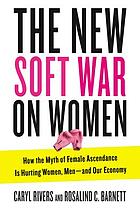 |
| Our home for the past half-decade. |
In many respects, we're hoping for a continuation of the stability that has characterized life since last December. Neither of us plan to change jobs, start a new academic program, or pursue radically different activities from this year. We'll still be very much married (in an ever-increasing number of states in this nation!) and look forward to only completing two instead of five tax returns this year. We very much hope for no health crises in 2014 and a continued baby-step-by-baby-step improvement to Hanna's depression and anxiety.
At the same time, we do have a few things on the horizon, so here's what's on our plate (at varying levels of certainty) in the months to come:
Financial Planning. Exciting, right? I guess it's a measure of my nerdiness that I actually do find this kind of paperwork and discussion stimulating. Now that Hanna and I are a couple of years out of graduate school and our income has more or less stabilized (*knock on wood*), and we've got things to think about like 401(k) contributions and renting vs. owning our living space, we decided it was time to meet with a financial planner. We'll be doing the consultation in early January, and I'm hoping she'll be encouraging and clarifying, with perhaps some refinements but no real curve balls (unless they're the good one -- I'll take good ones!)
motive Project. For the past half-year I've been poking around at the intersection of queer history, history of American Christianity, and history of education with a project on the Methodist Student Movement's motive magazine during the 1960s. I had a paper proposal accepted for Boston College's biennial on history of religion, taking place in March, so during January and February will be working intensively on the paper. I'll be doing a close reading of motive from 1963-1972 and thinking about how gender and sexuality are explicitly and implicitly presented within its pages. This is one small slice of a larger project that I hope will shed light on how and why left-leaning, mainline-evangelical Protestant Christians struggled with the question of homosexuality during the mid twentieth century.
Cats. Geraldine and Teazle will continue with their regime of napping, wrestling, climbing, napping some more, and demanding tuna. We also hope that, once we move into a slightly larger place, we will be able to offer our services fostering cats for our favorite local shelter, Black Cat Rescue, the group that brought us Geraldine.
Fenway Health's Community Advisory Board. I've recently applied to join the community advisory board of our awesome community health center, Fenway Health. If the current membership accepts me, I'll be serving a three-year term as part of the team of patients who support and consult with the staff on programs and services. I'm excited about this possible opportunity to give back to, and participate in, an organization that has been so good to us.
Travel? The past years have been intense travel years for us, and we learned a lot about how we do (and don't) like to organize our traveling experiences. We've talked about renewing our passports this spring and planning an end-of-2014 expedition to England, but the feasibility of that will depend in some measure on how the moving project falls in place. If we don't go to England, we're hoping to take a just-for-us week somewhere quiet (Cape Cod maybe), during the off season, to relax and recoup.
Long-form Blogging? The words haven't been coming easily the last six months for me; I'm not sure why. I certainly haven't stopped having the thoughts I used to share through blog posts, or reading the books I used to review in-depth. Part of it is sheer time. Part of it has been a need to limit the amount of time I spend on the computer when not at work. Part of it has been a lower feeling of urgency when it comes to voicing my particular perspective on issues on the internet (I certainly still share my thoughts in private correspondence and conversation). I am hopeful this is just an inward-looking time that will grow into a slightly new kind of online presence. I'm just not sure what that will look like yet.
In the meantime, you'll be getting more cat pictures and short-form book reviews! I hope you enjoy both.
Less anxiety, fear, and exhaustion. Hanna's struggled a lot this year with overwhelming feels of the nebulous, negative variety, and we'd like to see less of that as time goes on. It's no fun.
I look forward to following all of your own 2014 ups, downs, and in-betweens in the twelve months to come. It's a pleasure to be here, and elsewhere, with all of you.














